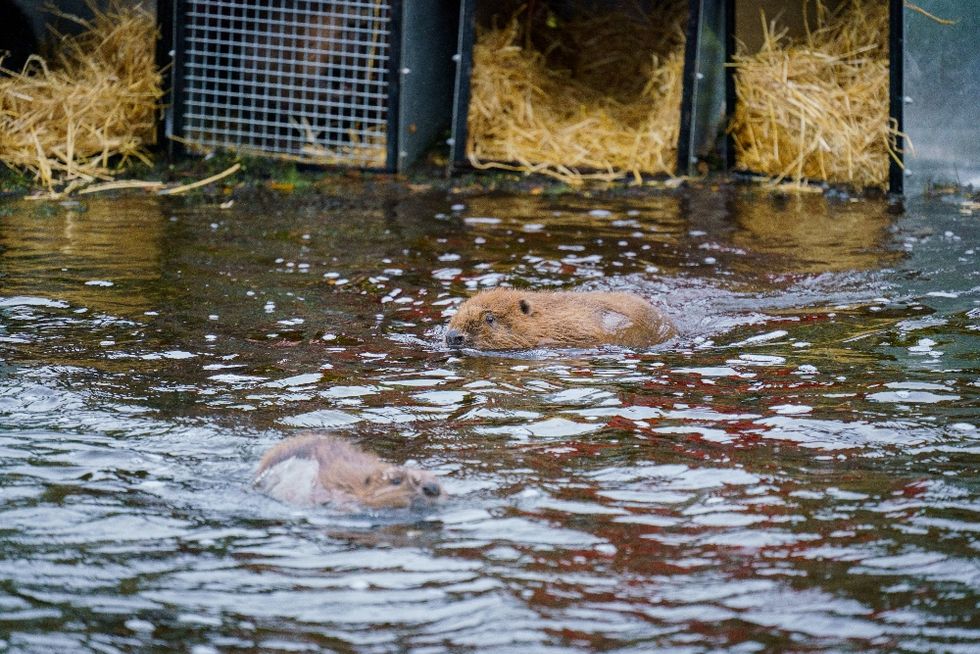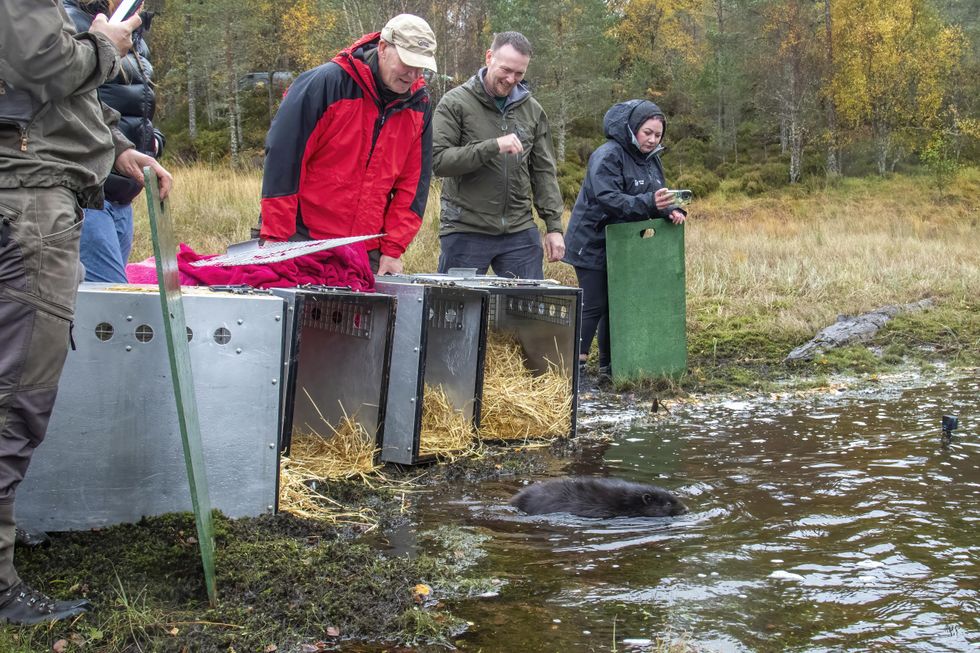Lucinda Cameron
Oct 27, 2025

A female beaver and kit being released into Glen Affric (Trees for Life/PA)
Beavers have been released into a Highland glen marking a moment of “wildlife history” for the species.
It comes after NatureScot granted a licence in August for the release of four family groups of beavers to the waters above Beinn a Mheadhoin dam in the Glen Affric national nature reserve (NNR) in the north-west Highlands.
The first two releases, of a beaver pair and then a family of five, took place on October 24.
Beavers were driven to extinction in Scotland some 400 years ago but an initial reintroduction trial of beavers at Knapdale in Argyll began in 2009 and they have since been released elsewhere.
The release in Glen Affric follows three phases of extensive consultations with local communities and land managers.

Forestry and Land Scotland (FLS), which manages the 17,604-hectare NNR, has been working in partnership with Trees for Life on the initiative since 2022, supported by Beaver Trust.
Steve Micklewright, Trees for Life’s chief executive, said: “As we saw the beavers released into the loch, we were watching a moment of wildlife history – offering hope for tackling the nature and climate emergencies, and a better future for biodiversity and people.
“We’re proud to have worked with FLS on this community-focused initiative.
“FLS has undertaken vital habitat restoration work in Glen Affric over many years and shown real leadership in nature restoration by reintroducing this important habitat-creating, biodiversity-boosting, flood-preventing animal.”
The Scottish Government announced in 2016 that beavers would be allowed to remain in Scotland and in 2019 they were recognised as a protected species.
Before being released in Glen Affric, the beavers were housed at a specialised beaver holding and quarantine facility at Five Sisters Zoo for health checks.
FLS north region manager Alex Mcleod said: “Beavers being translocated to Glen Affric is the culmination of a long, exacting and thorough process for FLS and Trees for Life.
“Fully engaging with the local Affric communities, including through a detailed consultation process, has been crucial in making sure that all voices were heard.
“This high degree of local consultation has helped put in place processes to discuss any necessary mitigation and to address concerns raised by those not in favour of beaver introductions.
“We are establishing a group to oversee ongoing monitoring to inform management decisions in the months and years to come, and I would hope that the beavers eventually become an integral and unremarked part of Glen Affric.”
Experts said that beavers create wetlands that benefit other wildlife, purify water and reduce flooding.
While the animals can sometimes create localised problems, the Glen Affric project partners said they have put measures in place to address these quickly should they emerge.
Top 100
The Conversation (0)













